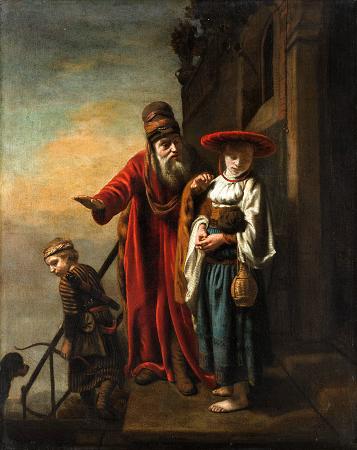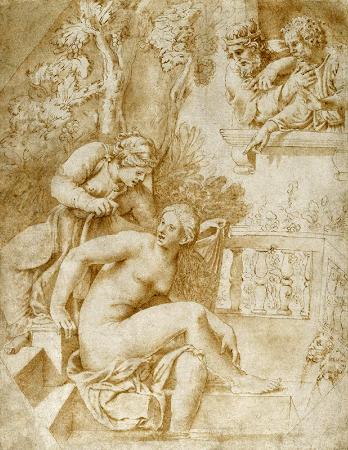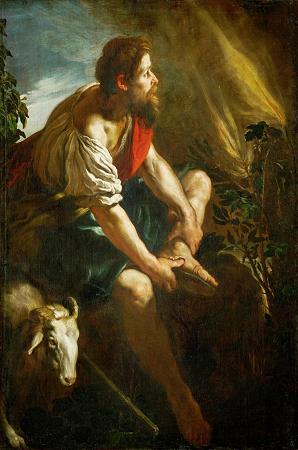Old Testament. The Old Testament is the first part of the Christian biblical canon, which is based primarily upon the twenty-four books of the Hebrew Bible, a collection of ancient religious Hebrew writings by the Israelites believed by most Christians and religious Jews to be the sacred Word of God. The second part of Christian Bibles is the New Testament, originally written in the Koine Greek language. The books that comprise the Old Testament canon, as well as their order and names, differ between Christian denominations. The Catholic canon comprises 46 books, and the canons of the Eastern Orthodox and Oriental Orthodox Churches comprise up to 49 books and the most common Protestant canon comprises 39 books. The 39 books in common to all the Christian canons correspond to the 24 books of the Tanakh, with some differences of order, and there are some differences in text. The additional number reflects the splitting of several texts into separate books in Christian bibles. The books which are part of a Christian Old Testament but which are not part of the Hebrew canon are sometimes described as deuterocanonical. In general, Protestant Bibles do not include the deuterocanonical books in their canon, but some versions of Anglican and Lutheran bibles place such books in a separate section called Apocrypha. These extra books are ultimately derived from the earlier Greek Septuagint collection of the Hebrew scriptures and are also Jewish in origin. Some are also contained in the Dead Sea Scrolls. The Old Testament consists of many distinct books by various authors produced over a period of centuries. Christians traditionally divide the Old Testament into four sections: the first five books or Pentateuch; the history books telling the history of the Israelites, from their conquest of Canaan to their defeat and exile in Babylon; the poetic and Wisdom books dealing, in various forms, with questions of good and evil in the world; and the books of the biblical prophets, warning of the consequences of turning away from God. Main articles: Biblical canon and Development of the Old Testament canon The Old Testament contains 39, 46, or more books, divided, very broadly, into the Pentateuch, the historical books, the wisdom books and the prophets. The table uses the spellings and names present in modern editions of the Christian Bible, such as the Catholic New American Bible Revised Edition and the Protestant Revised Standard Version and English Standard Version. The spelling and names in both the 1609-10 Douay Old Testament and the 1749 revision by Bishop Challoner and in the Septuagint differ from those spellings and names used in modern editions which are derived from the Hebrew Masoretic text. For the Orthodox canon, Septuagint titles are provided in parentheses when these differ from those editions. For the Catholic canon, the Douaic titles are provided in parentheses when these differ from those editions. Likewise, the King James Version references some of these books by the traditional spelling when referring to them in the New Testament, such as Esaias. In the spirit of ecumenism more recent Catholic translations use the same standardized spellings and names as Protestant Bibles in those books which are universally considered canonical, the protocanonicals. The Talmud in Bava Batra 14b gives a different order for the books in Nevi'im and Ketuvim. This order is also cited in Mishneh Torah Hilchot Sefer Torah 7:15. The order of the books of the Torah is universal through all denominations of Judaism and Christianity. The disputed books, included in one canon but not in others, are often called the Biblical apocrypha, a term that is sometimes used specifically to describe the books in the Catholic and Orthodox canons that are absent from the Jewish Masoretic Text and most modern Protestant Bibles. Catholics, following the Canon of Trent, describe these books as deuterocanonical, while Greek Orthodox Christians, following the Synod of Jerusalem, use the traditional name of anagignoskomena, meaning that which is to be read. They are present in a few historic Protestant versions; the German Luther Bible included such books, as did the English 1611 King James Version. Empty table cells indicate that a book is absent from that canon.
more...














